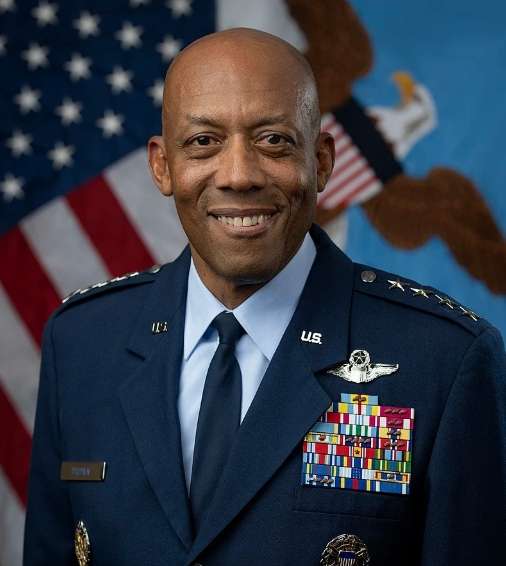President Trump Dismisses Leading General
The unexpected dismissal of General Charles “CQ” Brown Jr., Chairman of the Joint Chiefs of Staff, by President Donald Trump has sent shockwaves through the military establishment and ignited a fierce debate about the direction of American defense policy. Brown, a decorated F-16 pilot with over four decades of service, had risen through the ranks to become the highest-ranking military officer in the United States. His removal marks a significant shift in military leadership and comes amidst a broader push by the administration to dismantle diversity, equity, and inclusion (DEI) programs within the Department of Defense. While the official reasons for Brown’s dismissal remain undisclosed, the timing and context suggest a strong link to the escalating tensions surrounding DEI initiatives and the administration’s efforts to reprioritize military spending.
The selection of retired Air Force Lt. Gen. Dan “Razin” Caine as Brown’s proposed successor further underscores the administration’s focus on reshaping the military’s ideological landscape. Caine, a former F-16 pilot and former associate director for military affairs at the CIA, shares the administration’s skepticism towards DEI programs. Defense Secretary Pete Hegseth, a vocal critic of DEI initiatives, lauded Brown’s removal and the subsequent dismissals of Chief of Naval Operations Adm. Lisa Franchetti and Vice Chief of Staff of the Air Force Gen. Jim Slife. Hegseth’s framing of these personnel changes as a necessary step to combat “woke” policies within the military suggests a broader ideological purge aimed at aligning the armed forces with the administration’s conservative values.
The removal of Brown, a prominent Black military leader who has openly addressed his experiences with racial discrimination within the armed forces, adds a layer of complexity to the already charged political atmosphere. His dismissal, coupled with the firing of Adm. Franchetti, the first woman to lead the Navy, has raised concerns about the administration’s commitment to diversity and inclusion within the military. Critics argue that purging DEI programs and replacing diverse leadership with figures critical of such initiatives could erode morale, undermine professionalism, and send a chilling message to service members from marginalized backgrounds. They contend that a diverse and inclusive military is essential for fostering innovation, strengthening unit cohesion, and effectively representing the demographics of the nation it serves.
The administration’s justification for these sweeping changes centers on the need to refocus the military on its core mission of national defense and combat readiness. They argue that DEI programs have become overly politicized and distract from the military’s primary objective of preparing for and winning wars. The Pentagon’s concurrent announcement of budget cuts and a reduction of 5,400 civilian employees reinforces the administration’s narrative of prioritizing core military functions and streamlining operational efficiency. Supporters of the administration’s actions believe these changes will eliminate unnecessary bureaucracy, reduce wasteful spending, and ultimately enhance the military’s ability to effectively address national security threats.
However, concerns remain about the long-term consequences of these drastic measures. Critics argue that削减 civilian workforce and gutting DEI programs could undermine the institutional knowledge and expertise necessary for effective military operations. They also express concern that a focus solely on combat readiness, at the expense of broader societal values, could lead to a more insular and less adaptable military. The potential impact on recruitment and retention is also a key area of debate, with some suggesting that the perceived hostility towards diversity and inclusion could discourage talented individuals from pursuing military careers.
The unfolding events surrounding General Brown’s dismissal and the subsequent changes in military leadership represent a pivotal moment in the ongoing debate about the role and direction of the American armed forces. The clashing perspectives on DEI, budget priorities, and military culture reflect a deeper societal divide and raise fundamental questions about the balance between national security, social values, and the future of American military power. The long-term ramifications of these decisions will undoubtedly shape the character and effectiveness of the U.S. military for years to come, and the debate surrounding these changes is likely to continue to resonate throughout the political landscape.
Share this content:












Post Comment